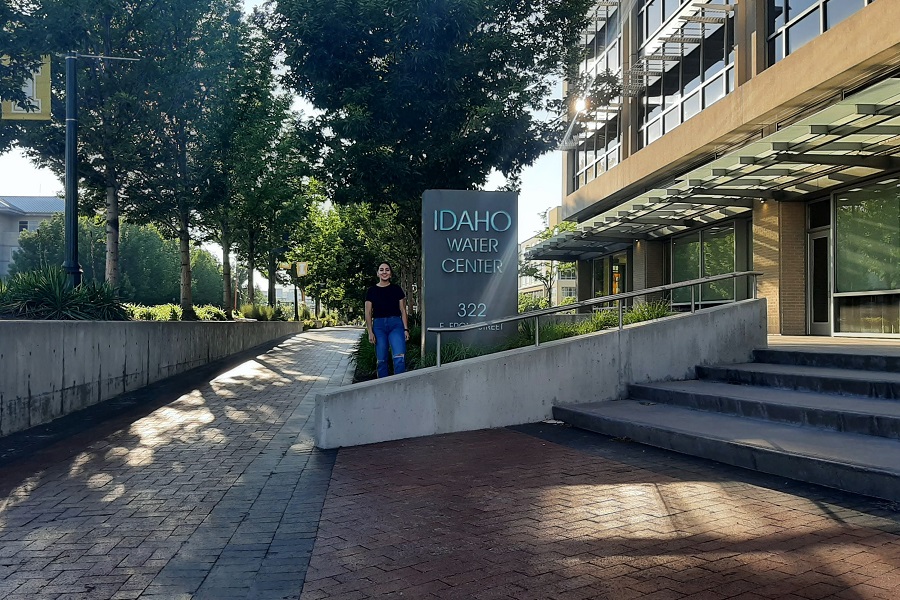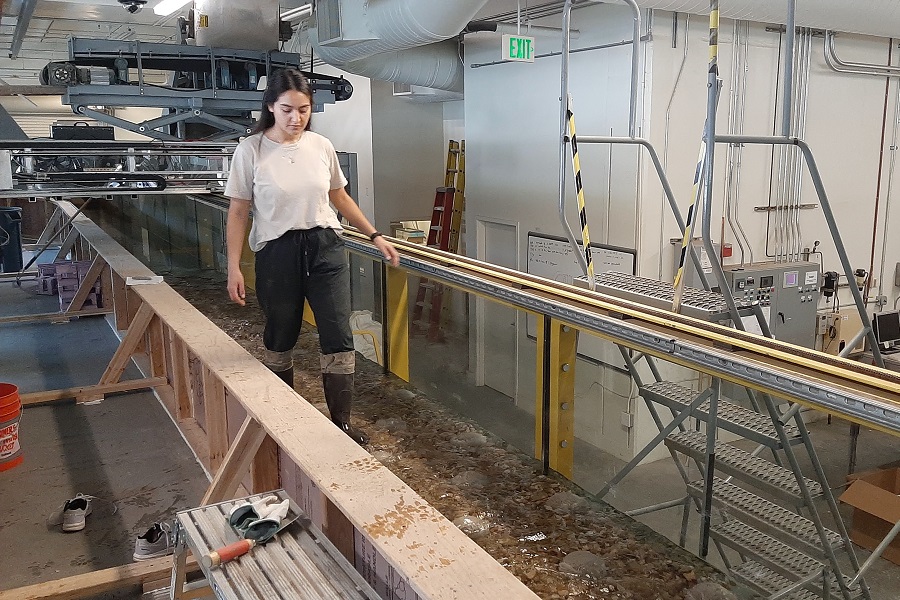|
Carolina Muñoz Higuera, a student of the civil engineering program at Universidad de La Frontera, spent three weeks at the Center for Ecohydraulics Research (CER) of the University of Idaho in the USA. |
“An internship abroad is an important opportunity to boost your professional career. Not only because of the new knowledge you acquire in the field you work in, but also because of the personal development that comes with it. It allows you to enhance your language skills, to get to know a new culture, to get more self-confidence and to learn how to interact in an unknown environment.” – These are the words that Carolina Muñoz Higuera of the civil engineering program of the Universidad de La Frontera (UFRO) used to describe the importance of an internship abroad. With these benefits in mind, the student, who is currently working on her thesis, did not hesitate to accept the invitation of her teacher Dr. Ángel Monsalve Sepúlveda, for an internship at the Center for Ecohydraulics Research (CER) of the University of Idaho in the USA. According to Carolina, who carried out her internship in May and June of this year, “Dr. Ángel Monsalve is currently working as a teacher at the research center, so his invitation was a great opportunity for my professional career and my personal development”. “We conducted experiments in an artificial channel that simulates a mountain river, with the objective of analyzing the sediment entrainment rate under different flow conditions. The activities included the initial conditions, such as sediment granulometry and the formation of the characteristic topography of the riverbed, as well as the execution of the experimental model and data collection,” the future civil engineer specified. She also explained that she will analyze the obtained results for the report of her degree project ‘Characteristics of the flow properties under incipient transport conditions in a mountain river’. At the same time, the work at the laboratory will contribute to the study ‘Collaborative Research: The role of streambed morphological changes induced by macro-roughness elements on hyporheic nitrous oxide generation’, carried out by Dr. Monsalve, William Reeder and Danielle Tonina, with the aim of studying the influence of the topography of a river on its greenhouse gas emissions. Back at the Universidad de La Frontera, Carolina keeps working on her degree project in order to graduate and become a civil engineer. “I enrolled in the civil engineering program because of my interest in mathematics, but as time went by, I realized how versatile this profession is,” she concluded.
Written by: Daphne Bormann Parada |






